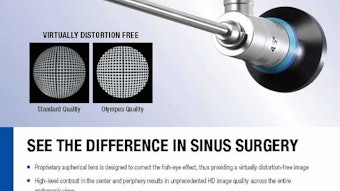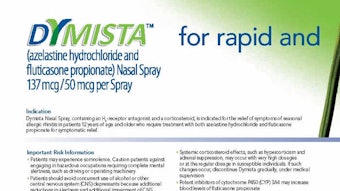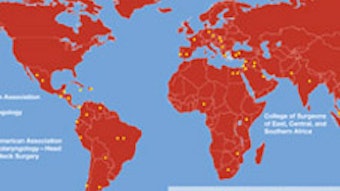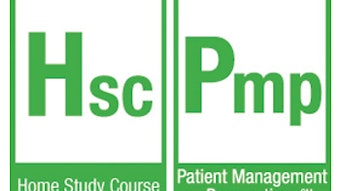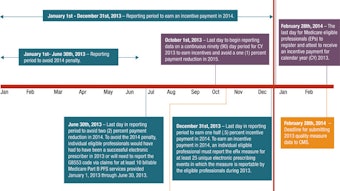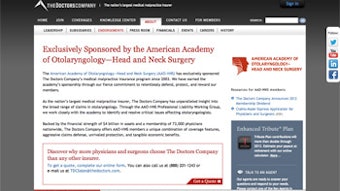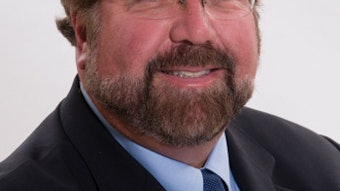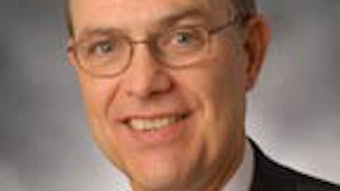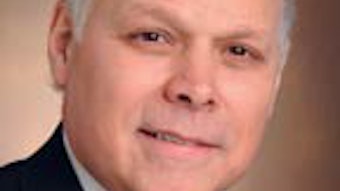Ad Hoc Payment Workgroup Evaluates Payment Models
The Ad Hoc Payment Workgroup was formed to provide an avenue for the Academy to evaluate current and future trends in healthcare payment reform and to develop methods for otolaryngologist-head and neck surgeons to actively participate in these new models. The workgroup will supplement the work the Physician Payment Policy Workgroup (3P) and the Academy as a whole are already doing to position us for a future payment system based on quality and efficiency. This includes our work with national quality organizations, such as the American Medical Association convened Physician Consortium for Performance Improvement and the ABIM Foundation’s Choosing Wisely® campaign, which focus on the development of quality metrics and the enhancement of quality care. In addition, we are working closely with our physician leadership to support our members’ participation in quality programs such as Physician Quality Reporting System (PQRS) and the Electronic Health Record (EHR) incentive programs. To support this work, in 2011 we partnered with CECity® to offer PQRIwizardSM, a CMS qualified registry for PQRS reporting. This tool allows the Academy to offer a streamlined method of participation in PQRS to otolaryngologists and builds member participation in the PQRS program. The Academy also continues to develop resources to aid member participation in the EHR Incentive program. The Ad Hoc Payment Workgroup plans to focus initially on three specific areas: 1) clarifying current quality guidance documents available to members, 2) developing a care path for members for the treatment of sinusitis, and 3) evaluation of payment reform trends. Clarifying Academy Guidance Documents Currently, the Academy produces a number of documents to aid members in achieving the highest standards of quality care, including Clinical Practice Guidelines (CPGs), Clinical Indicators (CIs), Clinical Consensus Statements (CCS) and Position Statements. In the last year, the Academy updated nine Clinical Indicators, reaffirmed nine position statements and revised 10, and drafted a new position statement on tongue suspension. Also last year, the AAO-HNSF published an update to our guideline development manual and two CCSs. Two new guidelines will be published this year, two CPGs are currently being updated, and development of a new CPG on tinnitus and a CCS on chronic and recurrent rhinosinusitis in children has begun. Each of these guidance documents has proved valuable for the Academy’s membership. However, the Ad Hoc Payment Workgroup plans to further evaluate the guidance documents and determine how they are best utilized and what differences exist among them. In doing this, they hope to better define each guidance document and improve its applicability to members. Development of the Academy’s First Care Path The Ad Hoc workgroup will also work on the development of the first Care Path, focusing on the diagnosis and treatment of sinusitis. The Academy has developed several resources for our members on the treatment of sinusitis including a clinical practice guideline, performance measures, and a clinical indicator. Therefore, the workgroup will use these existing resources and work to develop a care path for this disease process focusing on the medical management of sinusitis, mapping out the physician decision-making process, treatment, and different options for patients. The workgroup hopes to create other Care Paths designed to help improve quality and efficiency for some of the most costly head and neck diseases with high variability in treatment. Payer Reform Trends Currently, the United States is undergoing a vast transformation of the healthcare system and the Ad Hoc workgroup is working with members, private payers, and patient advocacy groups to best understand, analyze, prepare, and help shape future payment models. Recently, the American Medical Association (AMA) asked the Ad Hoc workgroup to evaluate a draft tool being developed in conjunction with the AMA Federation to evaluate practice readiness for the value-based purchasing payment program. On behalf of the Academy, the Ad Hoc group provided input to assist the AMA and Federation in the development of a tool that is applicable to specialists and their practices. Recently, the Ad Hoc workgroup participated in the development of comments provided to the United States House of Representatives’ Ways and Means Committee’s proposal to replace the Sustainable Growth Rate (SGR). You can read more about this proposal and the Academy’s comments on page 29. Along with this work, the workgroup plans to collaborate with other stakeholders, including the AMA and Surgical Coalition, on the development of new payment models. The Academy also plans to engage private payers to partner in the development of alternative payment methods for otolaryngologist-head and neck surgeons. As James L. Netterville, MD, stated in his President’s column, this is an exciting time in healthcare and the Ad Hoc workgroup is led by a talented group of physicians at the forefront of payment reform and with the expertise needed to develop alternative models of payment. The Academy will continue to work on ways to improve the quality of care for patients and advocate for otolaryngologists. For more information about the Ad Hoc workgroup, email the Health Policy team at healthpolicy@entnet.org.

The Ad Hoc Payment Workgroup plans to focus initially on three specific areas: 1) clarifying current quality guidance documents available to members, 2) developing a care path for members for the treatment of sinusitis, and 3) evaluation of payment reform trends.
Clarifying Academy Guidance Documents
Currently, the Academy produces a number of documents to aid members in achieving the highest standards of quality care, including Clinical Practice Guidelines (CPGs), Clinical Indicators (CIs), Clinical Consensus Statements (CCS) and Position Statements. In the last year, the Academy updated nine Clinical Indicators, reaffirmed nine position statements and revised 10, and drafted a new position statement on tongue suspension. Also last year, the AAO-HNSF published an update to our guideline development manual and two CCSs. Two new guidelines will be published this year, two CPGs are currently being updated, and development of a new CPG on tinnitus and a CCS on chronic and recurrent rhinosinusitis in children has begun.
Each of these guidance documents has proved valuable for the Academy’s membership. However, the Ad Hoc Payment Workgroup plans to further evaluate the guidance documents and determine how they are best utilized and what differences exist among them. In doing this, they hope to better define each guidance document and improve its applicability to members.
Development of the Academy’s First Care Path
The Ad Hoc workgroup will also work on the development of the first Care Path, focusing on the diagnosis and treatment of sinusitis. The Academy has developed several resources for our members on the treatment of sinusitis including a clinical practice guideline, performance measures, and a clinical indicator. Therefore, the workgroup will use these existing resources and work to develop a care path for this disease process focusing on the medical management of sinusitis, mapping out the physician decision-making process, treatment, and different options for patients. The workgroup hopes to create other Care Paths designed to help improve quality and efficiency for some of the most costly head and neck diseases with high variability in treatment.
Payer Reform Trends
Currently, the United States is undergoing a vast transformation of the healthcare system and the Ad Hoc workgroup is working with members, private payers, and patient advocacy groups to best understand, analyze, prepare, and help shape future payment models. Recently, the American Medical Association (AMA) asked the Ad Hoc workgroup to evaluate a draft tool being developed in conjunction with the AMA Federation to evaluate practice readiness for the value-based purchasing payment program. On behalf of the Academy, the Ad Hoc group provided input to assist the AMA and Federation in the development of a tool that is applicable to specialists and their practices.
Recently, the Ad Hoc workgroup participated in the development of comments provided to the United States House of Representatives’ Ways and Means Committee’s proposal to replace the Sustainable Growth Rate (SGR). You can read more about this proposal and the Academy’s comments on page 29. Along with this work, the workgroup plans to collaborate with other stakeholders, including the AMA and Surgical Coalition, on the development of new payment models. The Academy also plans to engage private payers to partner in the development of alternative payment methods for otolaryngologist-head and neck surgeons.
As James L. Netterville, MD, stated in his President’s column, this is an exciting time in healthcare and the Ad Hoc workgroup is led by a talented group of physicians at the forefront of payment reform and with the expertise needed to develop alternative models of payment. The Academy will continue to work on ways to improve the quality of care for patients and advocate for otolaryngologists. For more information about the Ad Hoc workgroup, email the Health Policy team at healthpolicy@entnet.org.
